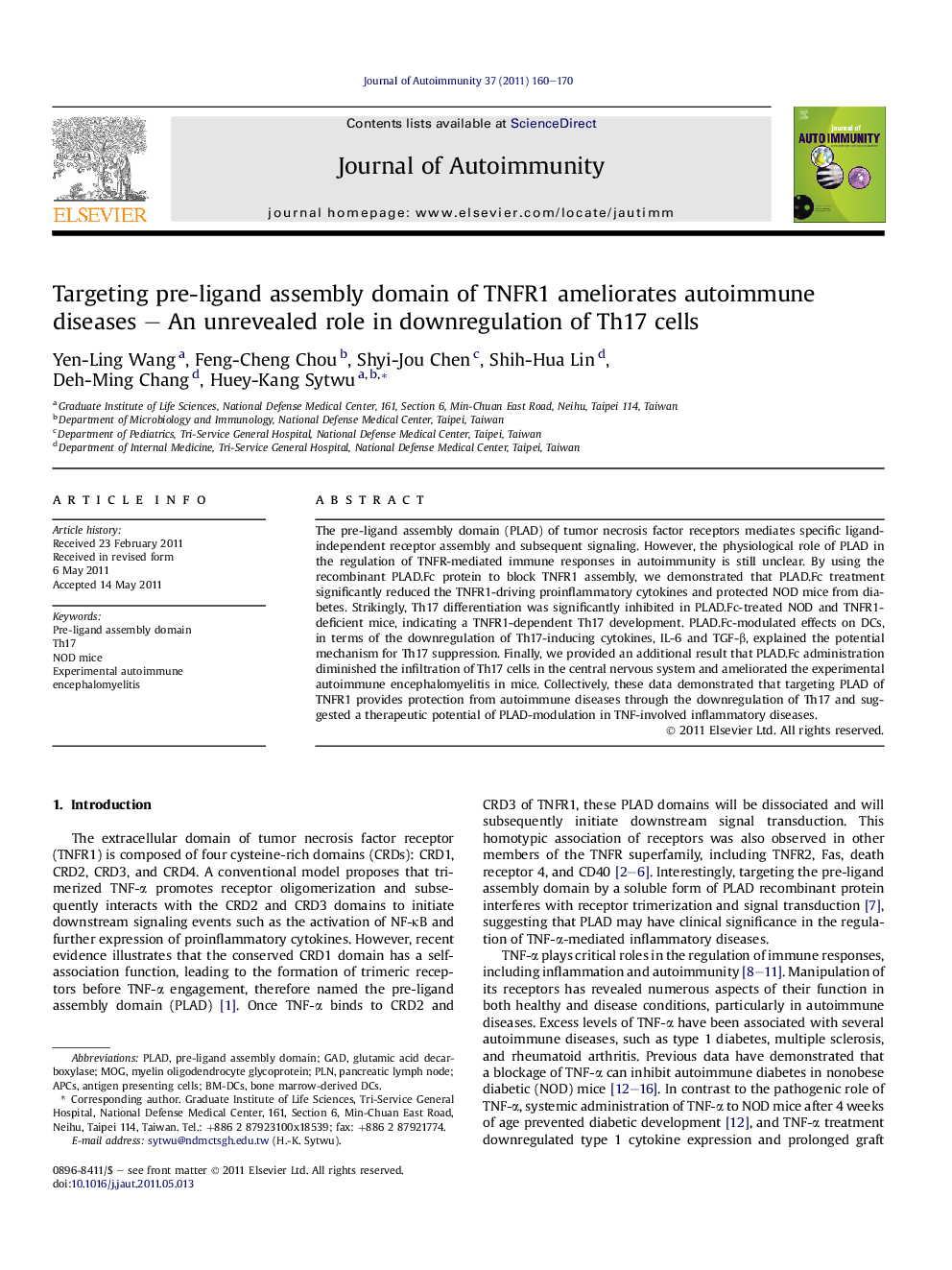| Article ID | Journal | Published Year | Pages | File Type |
|---|---|---|---|---|
| 3368007 | Journal of Autoimmunity | 2011 | 11 Pages |
The pre-ligand assembly domain (PLAD) of tumor necrosis factor receptors mediates specific ligand-independent receptor assembly and subsequent signaling. However, the physiological role of PLAD in the regulation of TNFR-mediated immune responses in autoimmunity is still unclear. By using the recombinant PLAD.Fc protein to block TNFR1 assembly, we demonstrated that PLAD.Fc treatment significantly reduced the TNFR1-driving proinflammatory cytokines and protected NOD mice from diabetes. Strikingly, Th17 differentiation was significantly inhibited in PLAD.Fc-treated NOD and TNFR1-deficient mice, indicating a TNFR1-dependent Th17 development. PLAD.Fc-modulated effects on DCs, in terms of the downregulation of Th17-inducing cytokines, IL-6 and TGF-β, explained the potential mechanism for Th17 suppression. Finally, we provided an additional result that PLAD.Fc administration diminished the infiltration of Th17 cells in the central nervous system and ameliorated the experimental autoimmune encephalomyelitis in mice. Collectively, these data demonstrated that targeting PLAD of TNFR1 provides protection from autoimmune diseases through the downregulation of Th17 and suggested a therapeutic potential of PLAD-modulation in TNF-involved inflammatory diseases.
